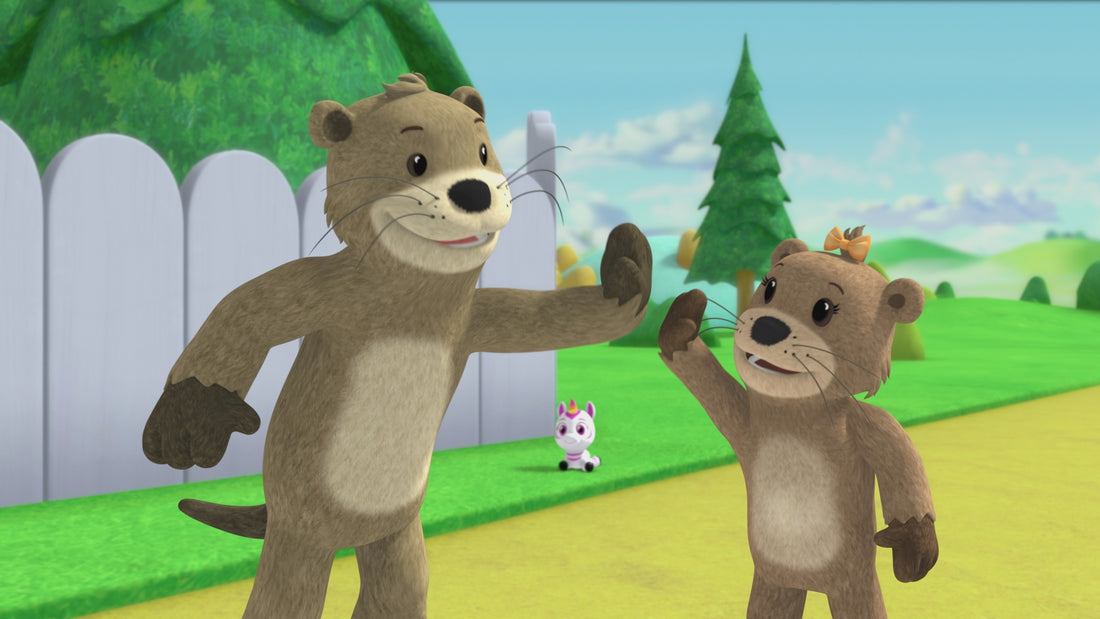Written by Natascha Crandall, PhD. - Educational Curriculum Consultant

Optimism and resilience are central to the social emotional learning we emphasize on Zoonicorn. Effective praise is one important way to help build these essential developmental skills in children.
All children need praise. Praise builds self-esteem and helps guide positive behaviors. Additionally, motivation, engagement and perseverance all increase as a result of praise. It sounds simple enough, but not all praise works in the same way. It is a lot trickier than it seems! Luckily, social learning theorists and psychologists have shown us the ropes on how to praise in a way that motivates, rather than negates a child’s positive behaviors.
Praise is most effective when it has to do with who the child is rather than what they are doing. Parents should praise a child’s efforts and the process, rather than the achievement or ability. Phrases like "good job" are not as effective as "you worked really hard". Praise should also be specific and descriptive rather than general, so “that was a tough game, but you did great working hard until the end” is better than “great game!”
I know what you are thinking… “Really? That’s a lot of effort, does it really make a difference?” The answer is YES. Research has shown that praising a child's skill or intelligence can actually be counterproductive. In a study done by Dr. Carol Dweck, she found that when we praise children’s intelligence for their achievement, they were less likely to want to try again- lest they lose credibility if they don’t do well at the activity again. These children were thus more likely to be less determined and sacrifice valuable learning opportunities, rather than gain them!
Praise needs to be sincere and honest. Parents should avoid easy-task praise or over-praise. Children are able to see through praise that they feel is not earned. Encouraging words that are inconsistent with a child’s self-view may be perceived as lacking value. Parents should avoid comparison praising. Kids who are praised by comparison don’t stop comparing when they fail. Instead, they lose motivation. Like conditional praise, social-comparison encouragement teaches children that winning, not learning, is the goal.
Parents should also avoid controlling or conditional praise, which is often manipulative. This seems obvious, but it is easy to fall into. When my daughter was young and playing on her first soccer team, we celebrated her goals by going out for donuts every time she scored a goal. It seemed like a fun way to end the day! What I didn’t realize is that I was only rewarding or praising her achievement, and not praising her efforts. This came to a head when her team won a game and she came off the field crying because she didn’t score a goal, and just didn’t want to play soccer anymore. My conditional praise took the fun away from the situation- it didn’t make things better, it made things worse! The research was right! Children who feel their self-worth is contingent on approval may not want to try new things. These kids are less creative because innovation might disrupt the norm, resulting in negative judgement. Children like these are also less self-directing and prefer conformity. Essentially, I unintentionally taught my daughter “Why try and fail if failure doesn’t get you the donut?”
The good news is that once we know the pitfalls, it is easier to avoid them. Of course, we will make mistakes, and we will offer the donuts every once in a while, but the more we practice the “you worked so hard out there” rather than the “you scored a goal” praise, the easier it gets.
At Zoonicorn, we are constantly seeking ways to emphasize social-emotional learning, with an emphasis on optimism and resilience. Parents can help underscore what children are learning from our episodes by seeking ways to convey appropriate, timely and effective praise. Together, we can help nurture healthy characters traits and behaviors in our young children.

